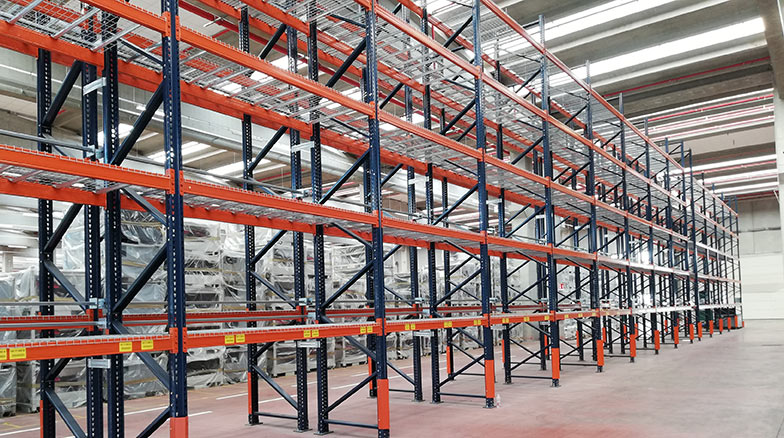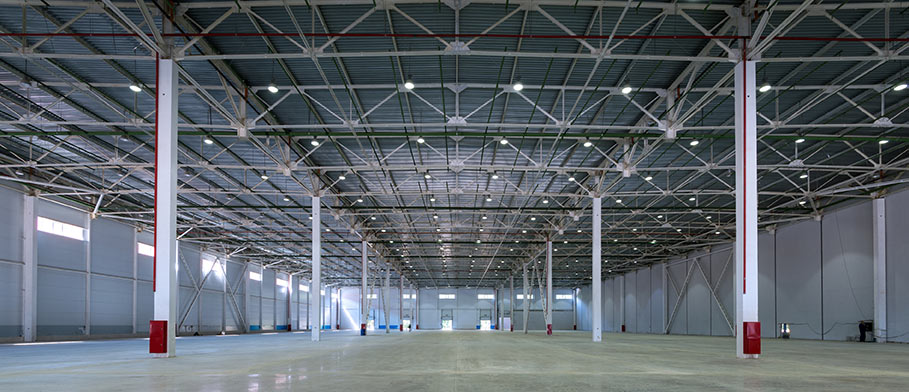Do you have unused industrial space that you want to utilize? This is usually the case with industries that have a seasonal demand. In the off-season they have plenty of industrial space that isn’t in use until the demand increases again. Renting this unused industrial space can be a good way to earn money while still keeping possession of it. Just like houses and shops, space is also rentable. The only question is where are you going to find renters for your space? There aren’t many avenues where you can look for people interested in renting industrial space. Space4rentnetwork.com is a website where you can list your unused spaces and find renters for them just like you would for a home; it’s the place to rent industrial space.

Space4rentnetwork.com has a simple platform that lets you meet up with people and companies that might have need for some additional space. You can communicate with them via many different options and finalize the details of the renting agreement. It’s all very simple and easy to understand. However, before you get to the part of meeting interested parties, you will have to list your space on the platform. This will need you to create an account first and purchase a subscription. Creating an account is simple. You just have to input your name, email ID, and a password to signup. You will find both annual and monthly subscription packages on this website. Just choose the one that suits your needs and budget.

When listing a space on Space4rentnetwork.com, you will have to provide some information about it. To help you with that, this website offers a variety of menus that come with multiple options. You just have to checkout each menu and pick the option that you want. For instance, there is a menu dedicated to the type of space you have. You will see multiple options here and you just have to check the ones that accurately describe your space. In this same, you will be asked to provide a title for the space and its address. Also, you will get to mark the dates on which the space won’t be available for rent. Similarly, there are other menus available for uploading photos and choosing renting rates.
After listing a space, you just have to wait for people to send inquires to you. These inquiries will be sent to your inbox. You can view them and then get in touch with the interested parties. Any discussions regarding the rental terms can take place anywhere you want. Space4rentnetwork.com won’t interfere in that. They will just connect you with people who are interested in renting your space. Similarly, money transactions aren’t handled by this website too. You and the renter will have to agree upon how the rent payments will be transferred.

5 Biggest Mistakes to Avoid When Rending an Industrial Space
When searching for an ideal industrial shop space to rent/lease or buy, it’s easy to get caught up in the details. But there are some common pitfalls that can be addressed before you begin your search. These five red flags will help you avoid the worst mistakes when renting an industrial space. The right warehouse or manufacturing facility can be the perfect home for your business. Whether you’re looking to relocate your current operations, launch a new company, or expand your existing one, an industrial space is a cost-effective way to get everything you need under one roof. However, with so many options available, choosing the right one can be difficult. Every business has different needs and priorities when it comes to leasing or renting a specific type of property — even something as seemingly universal as “industrial” can come with a variety of subcategories that have important implications on what kinds of activities are allowed on-site and what kinds of businesses might find it most appealing.
Research your requirements before you begin your search
There are an overwhelming number of factors to consider when you begin your search for a specific type of property, and there’s no way to account for them all up front. The best way to make sure you’re prepared to find the right property for your business is to start by making a list of your business requirements. This can help you narrow down your options when you begin your search, which in turn will make it less likely that you make a mistake when selecting the right property. This will also help you avoid getting overwhelmed by the sheer number of options that are out there.
Check the lease terms and conditions
It’s important to carefully consider the lease terms and conditions before you sign on the dotted line. The lease will set the rules for your relationship with the landlord over the next one to 10 years. Before you begin your search, familiarize yourself with the types of lease agreements available, and review the lease terms of a few properties that catch your eye. This will help you understand what’s required for a lease agreement and also help you determine which properties are a good match for your business.
Don’t assume the listed square footage is accurate
When you find a property that you think is the perfect fit for your business, take the time to carefully measure the listed square footage. It’s a common mistake to assume that the total square footage includes all of the ancillary areas (such as stairwells and restrooms) that you won’t actually be renting. This can lead to an overestimation of the amount of industrial space you can comfortably fit into the property. Another important measurement to keep in mind when you’re researching properties is the distance to the nearest power source. This will be important to your energy consumption and have an impact on the cost of your lease.
Be wary of properties that are too good to be true
Keep an eye out for industrial properties that seem too good to be true. This could indicate that something’s amiss and that there might be a catch that you aren’t prepared for. For instance, a landlord might promise a rent that’s significantly below market value, or a property might be advertised as being available “immediately” with no contingencies attached. An attractive “too good to be true” property could be hiding a major flaw that you’ll regret later. For instance, a landlord might promise an unusually low rent in exchange for the right to first refusal on your lease renewal after a year or two. Or a property owner might be in a rush to rent the property and have no interest in your long-term business goals. Either of these situations could lead to problems down the road.
Double-check the location and neighborhood info
The neighborhood surrounding a property can have a major impact on your business operations. Be sure to thoroughly research the surrounding area of each property you’re considering. This will help you determine whether or not the neighborhood is acceptable for your business. You can start by checking out crime and safety statistics for the neighborhood. You can also talk to friends who live nearby or read comments from previous tenants on sites like Yelp to get a better sense of what the neighborhood is like. Is your proposed level of industrial activity in line with city zoning bylaws? There’s a big difference between light industrial and heavy industrial zones.
Assess whether or not repairs and renovations will be necessary
Even though the ideal property is one that’s move-in ready, you’re probably going to end up negotiating with a leasing agent who has listed something no exactly described properly. This is an ideal opportunity to negotiate terms that will protect your investment, as you’re entering into a business relationship with someone who knows that they have to sign a contract with you even if they haven’t been able to rent the property yet. If you’re only interested in a bare-bones property that needs repairs or renovations, you may be able to negotiate a lower price or find a leasing agent who is eager to sign a contract with you.
Bottom line
Renting an industrial shop space can seem like a simple process — but it’s easy to make mistakes if you aren’t prepared. Start by researching your business requirements, carefully reviewing the lease terms and conditions, and making sure you understand the location and neighborhood of each potential property. Assess whether or not repairs and renovations will be necessary, and make sure you’re prepared to find a property that meets your specific needs. These red flags will help you avoid the worst mistakes when buying an industrial space.
